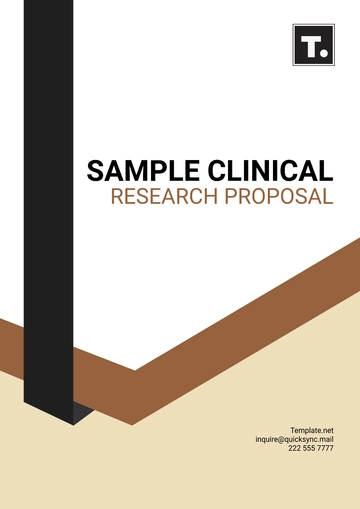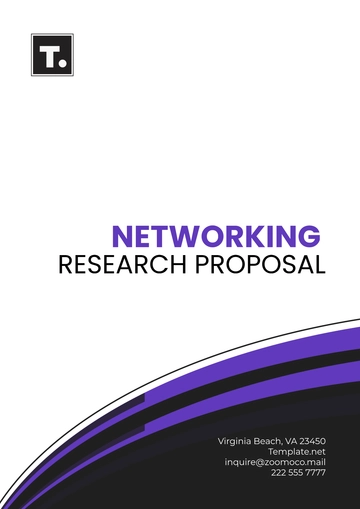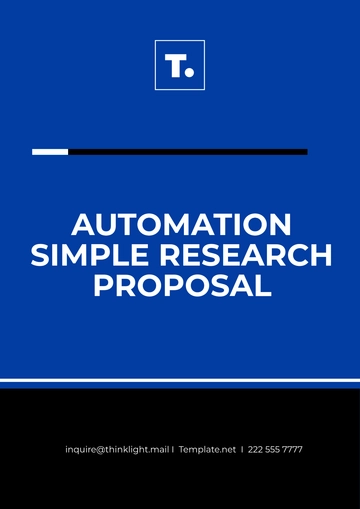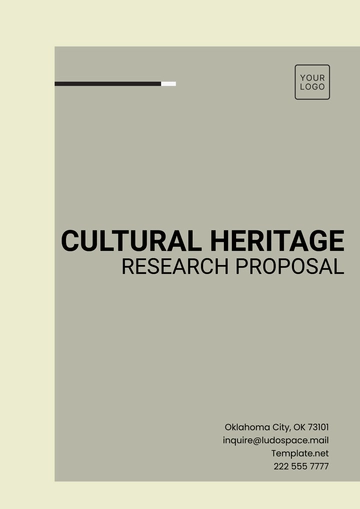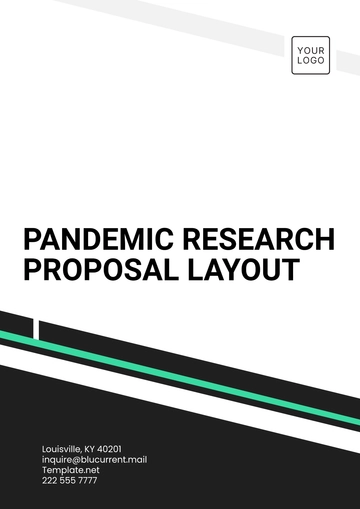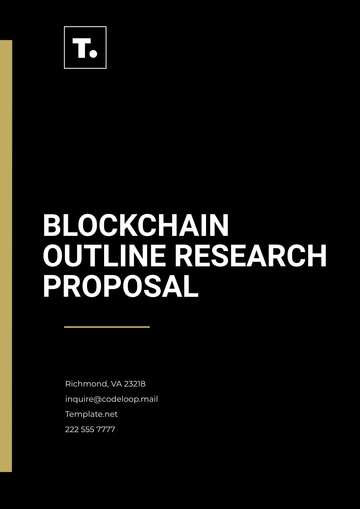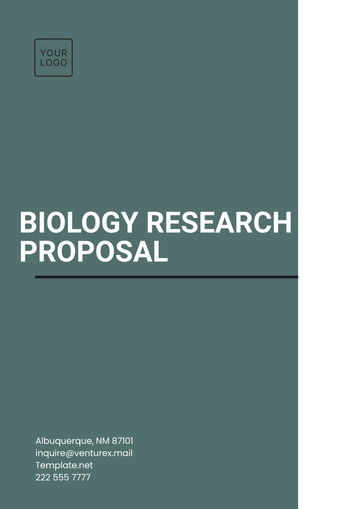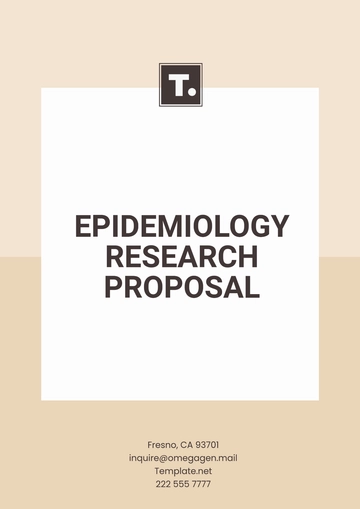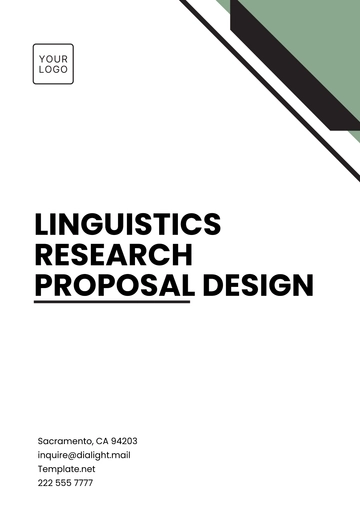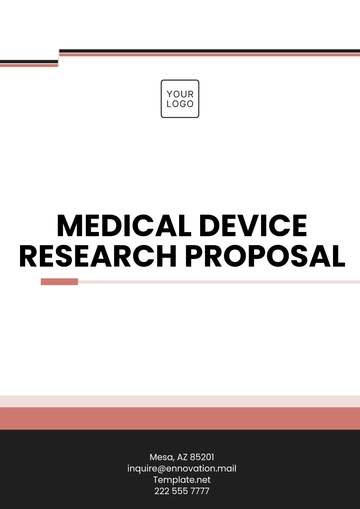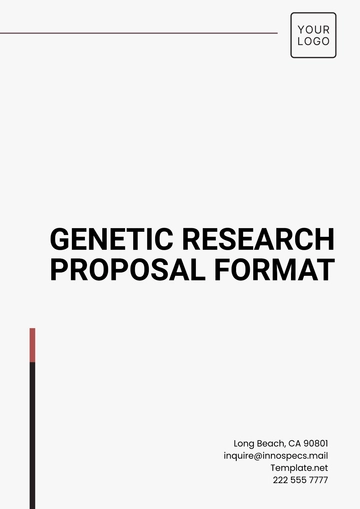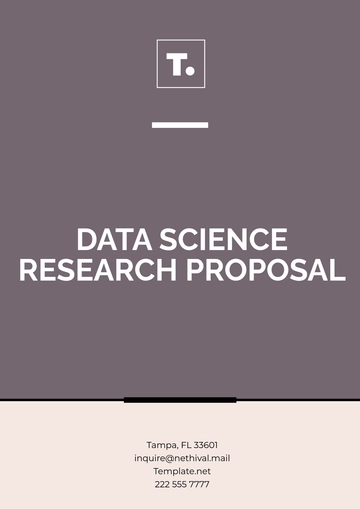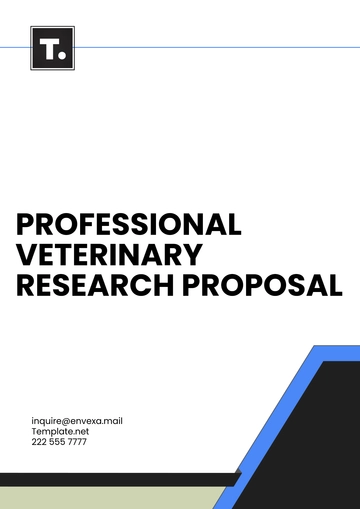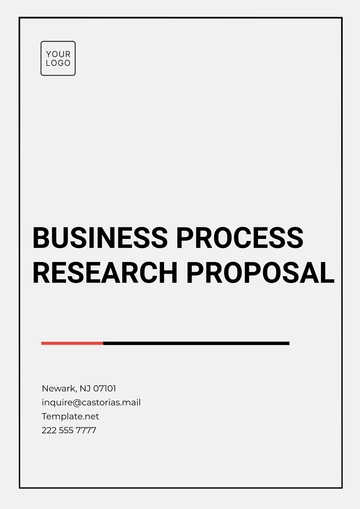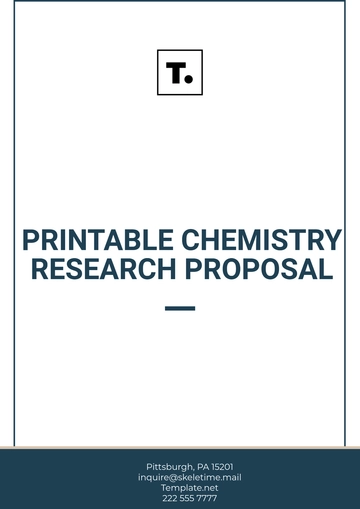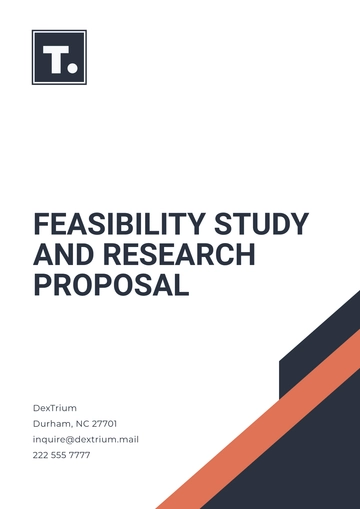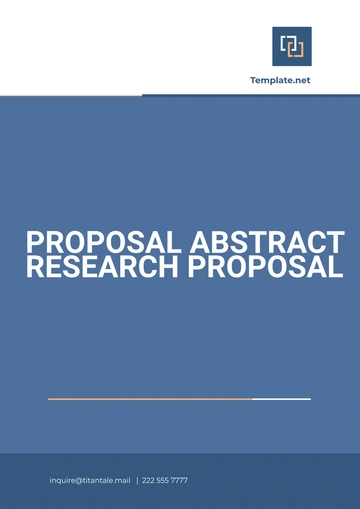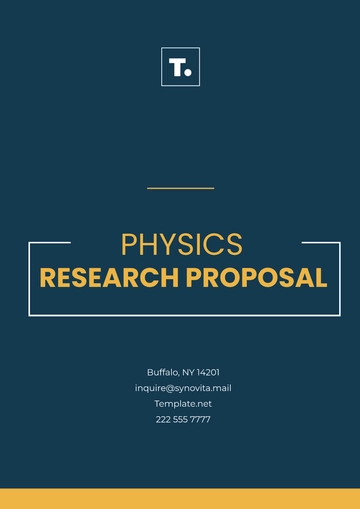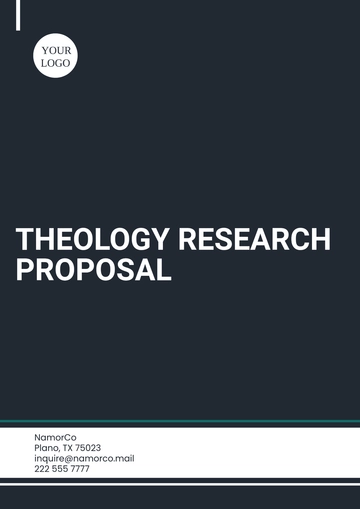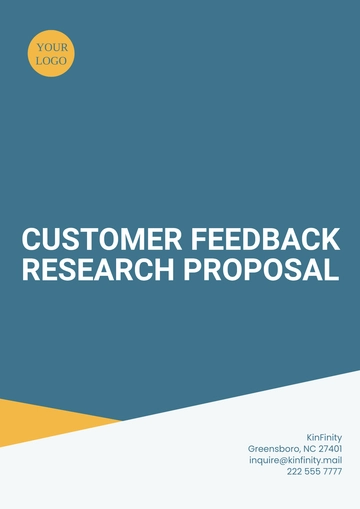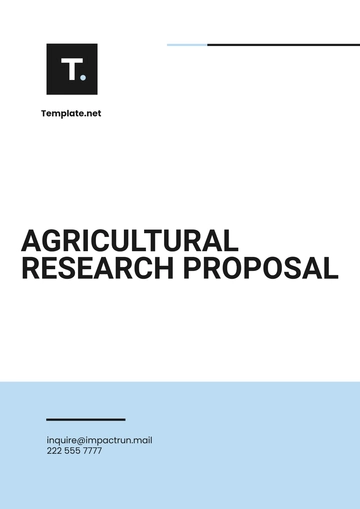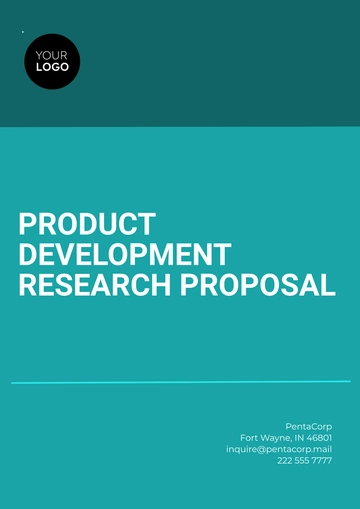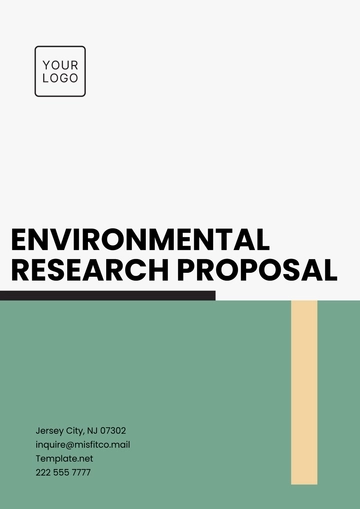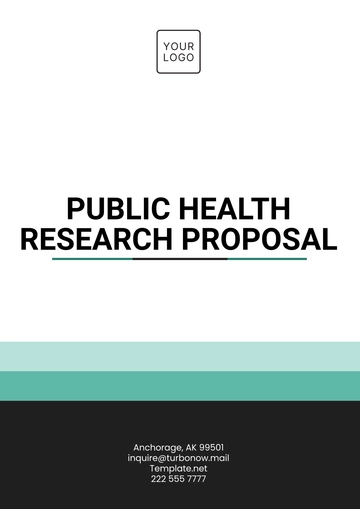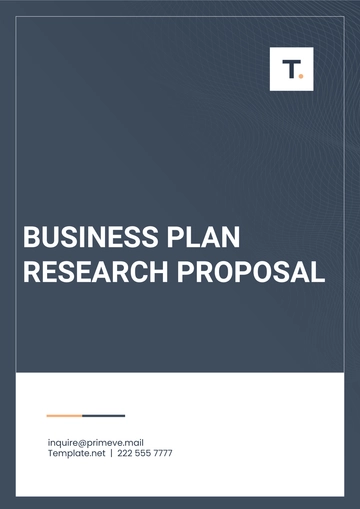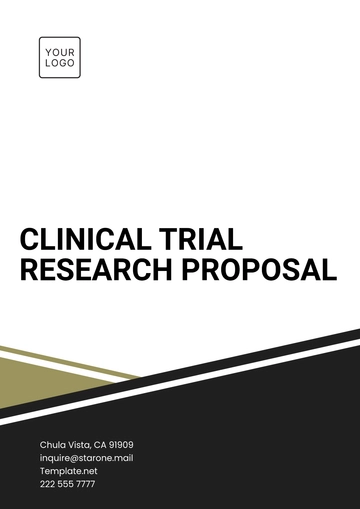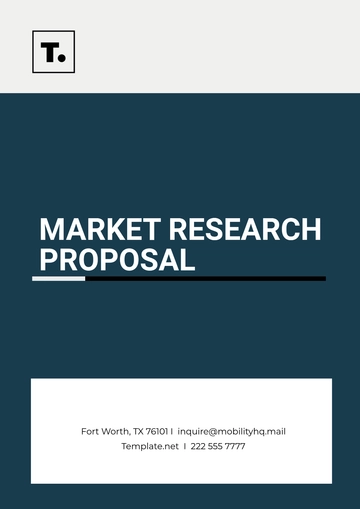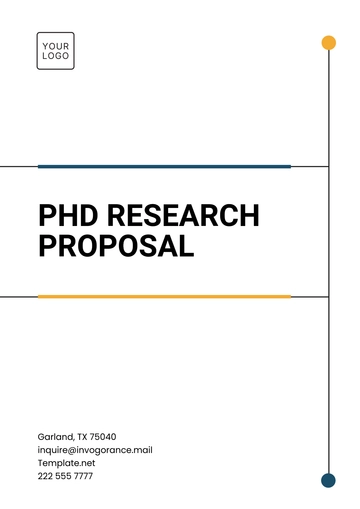Free Pandemic Research Proposal Layout
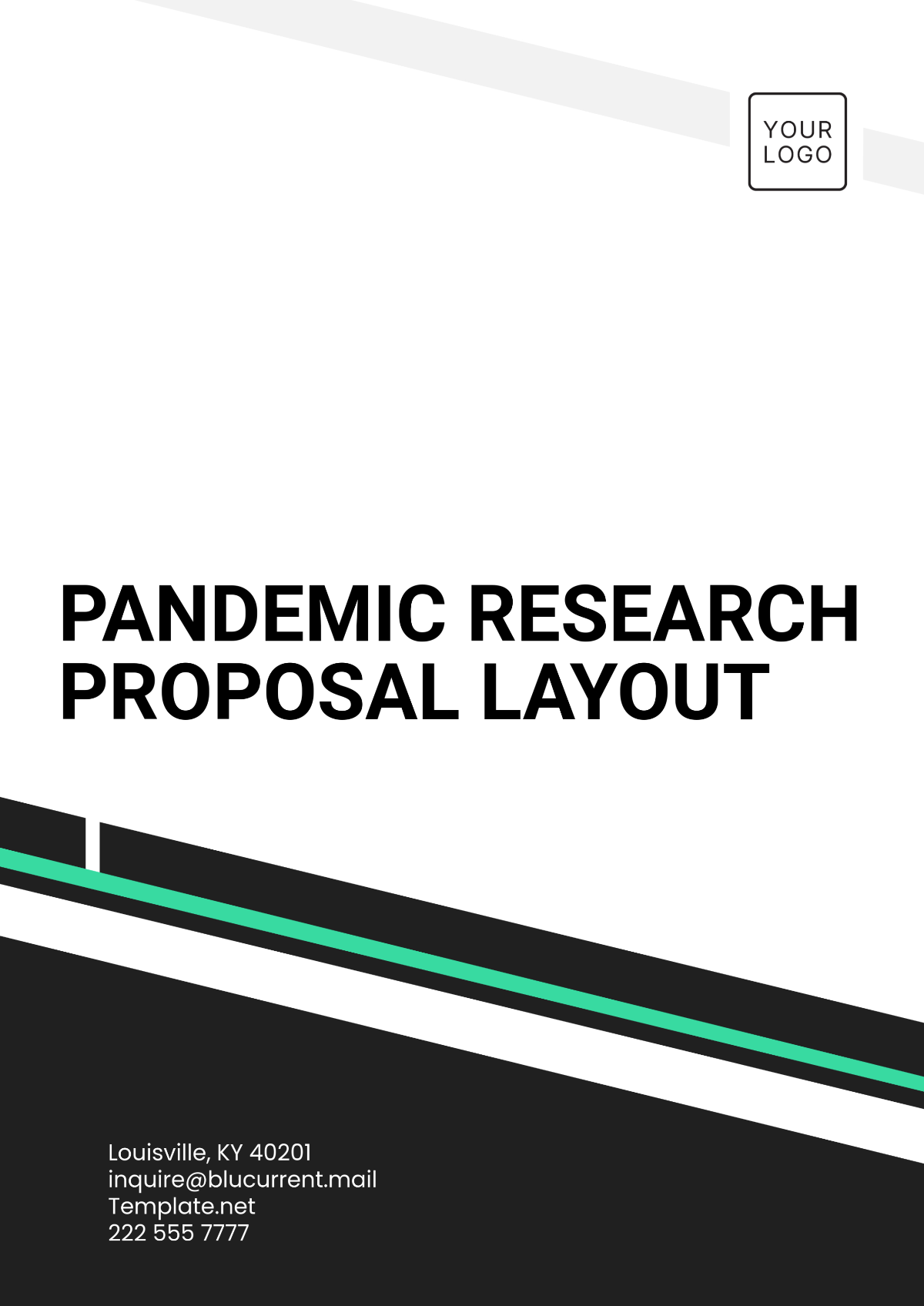
Prepared By: [Your Name]
I. Title Page
Research Title: Provide a concise and descriptive title for the research project.
Researcher’s Name: Include the name of the lead researcher or principal investigator.
Institution: State the affiliated organization or academic institution.
Date: Specify the date of the proposal submission.
II. Abstract
Summary of the Proposal: Provide a brief overview of the research topic, objectives, methodology, and expected outcomes (150-250 words).
III. Introduction
Background Information: Discuss the context and importance of the research topic, including the impact of pandemics on public health.
Problem Statement: Clearly state the research problem and the knowledge gap the study aims to address.
Research Significance: Explain why the research is important and how it can contribute to understanding or mitigating pandemics.
IV. Research Objectives
Main Objectives: List the primary goals the research seeks to achieve.
Specific Aims: Break down the objectives into specific, measurable aims or research questions.
V. Literature Review
Previous Research: Summarize existing studies related to pandemics, highlighting relevant findings and gaps in the current knowledge.
Theoretical Framework: Outline the theories or models guiding the research approach.
Current Challenges: Discuss challenges or controversies identified in previous studies.
VI. Methodology
Research Design: Describe the type of study (e.g., qualitative, quantitative, or mixed methods).
Data Collection: Explain the methods for gathering data (e.g., surveys, interviews, or lab tests).
Sampling: Outline the target population and sampling techniques used.
Data Analysis: Describe the methods and tools for analyzing the collected data.
Ethical Considerations: Address any ethical issues and the steps taken to protect participants.
VII. Expected Outcomes
Anticipated Results: Describe the possible findings of the research.
Impact on Public Health: Explain how the results could contribute to controlling or understanding pandemics.
VIII. Budget and Funding
Estimated Costs: Provide a detailed breakdown of the financial needs, including personnel, equipment, travel, and other expenses.
Funding Sources: Identify potential funding agencies or grants for the research project.
IX. Timeline
Research Phases: Outline the key phases of the research project (e.g., literature review, data collection, analysis).
Milestones and Deadlines: Provide specific dates for each phase and major milestones.
X. References
Citations: List all the scholarly sources, articles, and references cited in the proposal, following a standard citation style (e.g., APA, MLA).
- 100% Customizable, free editor
- Access 1 Million+ Templates, photo’s & graphics
- Download or share as a template
- Click and replace photos, graphics, text, backgrounds
- Resize, crop, AI write & more
- Access advanced editor
Create impactful research proposals with our Pandemic Research Proposal Layout Template available on Template.net. This editable and customizable template is tailored to help you outline studies related to pandemics and public health crises. With sections you can easily personalize using our Ai Editor Tool, it’s the ideal choice for developing a structured and comprehensive research proposal quickly and efficiently.
You may also like
- Business Proposal
- Research Proposal
- Proposal Request
- Project Proposal
- Grant Proposal
- Photography Proposal
- Job Proposal
- Budget Proposal
- Marketing Proposal
- Branding Proposal
- Advertising Proposal
- Sales Proposal
- Startup Proposal
- Event Proposal
- Creative Proposal
- Restaurant Proposal
- Blank Proposal
- One Page Proposal
- Proposal Report
- IT Proposal
- Non Profit Proposal
- Training Proposal
- Construction Proposal
- School Proposal
- Cleaning Proposal
- Contract Proposal
- HR Proposal
- Travel Agency Proposal
- Small Business Proposal
- Investment Proposal
- Bid Proposal
- Retail Business Proposal
- Sponsorship Proposal
- Academic Proposal
- Partnership Proposal
- Work Proposal
- Agency Proposal
- University Proposal
- Accounting Proposal
- Real Estate Proposal
- Hotel Proposal
- Product Proposal
- Advertising Agency Proposal
- Development Proposal
- Loan Proposal
- Website Proposal
- Nursing Home Proposal
- Financial Proposal
- Salon Proposal
- Freelancer Proposal
- Funding Proposal
- Work from Home Proposal
- Company Proposal
- Consulting Proposal
- Educational Proposal
- Construction Bid Proposal
- Interior Design Proposal
- New Product Proposal
- Sports Proposal
- Corporate Proposal
- Food Proposal
- Property Proposal
- Maintenance Proposal
- Purchase Proposal
- Rental Proposal
- Recruitment Proposal
- Social Media Proposal
- Travel Proposal
- Trip Proposal
- Software Proposal
- Conference Proposal
- Graphic Design Proposal
- Law Firm Proposal
- Medical Proposal
- Music Proposal
- Pricing Proposal
- SEO Proposal
- Strategy Proposal
- Technical Proposal
- Coaching Proposal
- Ecommerce Proposal
- Fundraising Proposal
- Landscaping Proposal
- Charity Proposal
- Contractor Proposal
- Exhibition Proposal
- Art Proposal
- Mobile Proposal
- Equipment Proposal
- Student Proposal
- Engineering Proposal
- Business Proposal
